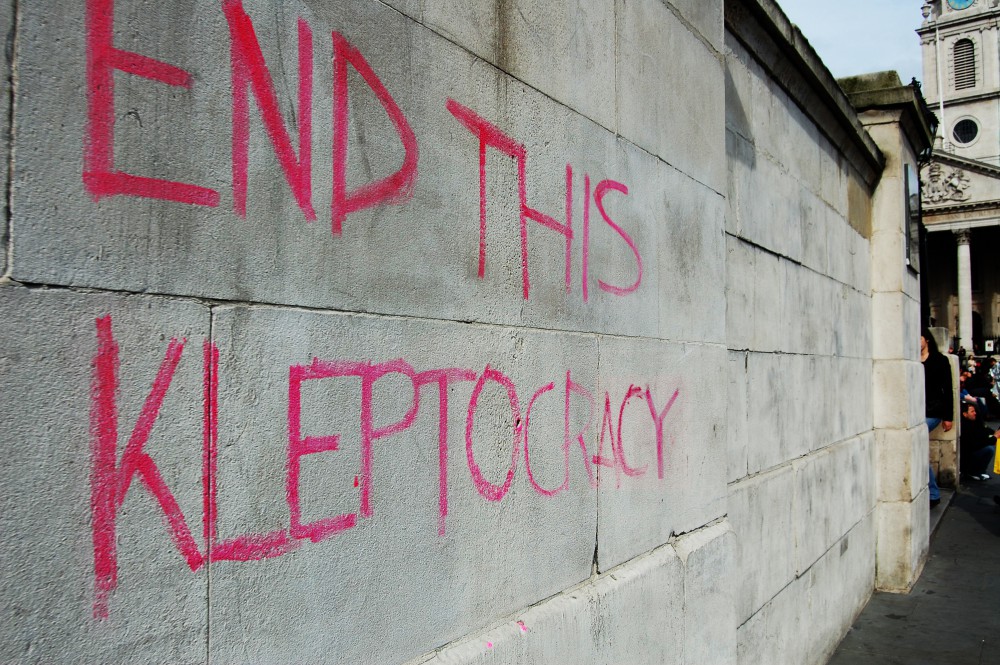Conservative Think Tank Scholars Note “Ending Criminal Secrecy Might become that Rarest of Political Beasts: a Truly Non-Partisan Issue.”
Scholars at the Hudson Institute recently announced in an article their support for action to curtail the abuse of anonymous shell companies. The conservative think tank’s Kleptocracy Initiative argues that the U.S. efforts around the world to stabilize governments and root out corruption are being undermined by an irrational contradiction where U.S. laws are at the same time providing a “safe haven to their dirty cash.”
Hudson’s Nate Sibley writes:
“How should the U.S. deal with the growing number of regimes that are not only corrupt, but using corruption as their guiding principle of government? It is an increasingly urgent question. From rogue states to terrorism, insurgencies, cyberattacks, and disinformation, it is kleptocracy, or “rule by thieves,” which fuels the salient geopolitical threats of our time. Failure to recognize the true nature of these regimes, let alone our own complicity in their crimes, poses perhaps the single greatest challenge to U.S. national security today…At every stage of this process, the primary mechanisms for transferring stolen cash are “anonymous” companies, trusts, and other financial instruments whose true ownership is obscured. They may appear to be owned by a string of other (equally opaque) companies, or are perhaps fronted by middlemen while real control is exercised elsewhere. Whatever the structure, the intention is the same: to conceal the true owner’s identity so they can move ill-gotten gains around the world, without any questions being asked by law enforcement agencies.”
The Hudson Institute’s scholars join a broad coalition of unlikely bedfellows that have recently come out in support of action to address anonymous shell companies—including senior government officials, law enforcement officers, dozens of NGOs, and a collection of commercial interests that includes all major U.S. banks.
As they point out in their article, “ending criminal secrecy might become that rarest of political beasts: a truly non-partisan issue.”
The support of the Hudson scholars is certainly a sign that—in the wake of the Panama Papers—the momentum for ending the abuse of anonymous companies is growing and becoming ever more bipartisan. It’s no secret either; in a new report, titled the Kleptocracy Curse: Rethinking Containment, which was released shortly after Sibley’s article, Hudson’s Kleptocracy Initiative points out the deep connection between global security and anonymous companies.
In the report, Ben Judah notes:
“Almost all the major crises identified in the U.S. National Security Strategy have been worsened by corruption and anonymous companies. This is evident in the Greater Middle East where the U.S. is struggling with the civil wars and authoritarianism unleashed by the Arab Spring. Every country thrown into chaos and civil war since these social uprisings began was ruled by elites violently detested for their use of corruption and illicit financial schemes to cement and strengthen their power…
“…the baroque scale of corruption practiced by Egyptian, Libyan, and Syrian ruling elites was a rallying cry for this revolution. The wealth of the family of former Libyan dictator, Muammar Qadaffi, was estimated in 2011 to total $200 billion; the wealth of the family of Egyptian dictator Hosni Mubarak was estimated at $700 billion; the wealth of the family of Syrian dictator Bashar al-Assad was estimated at $1.5 billion. Further, all three families were exposed in the Panama Papers as extensive users of offshore accounts.”
The full report can be found here.

